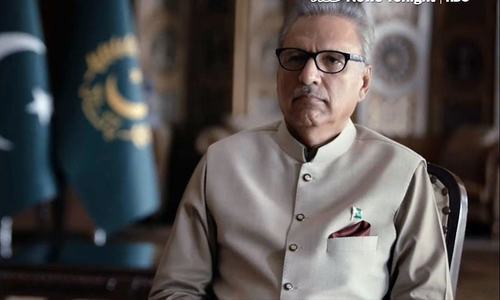ISLAMABAD: Prime Minister Imran Khan has vowed to face the opposition forcefully during the Senate session requisitioned for Wednesday and expressed confidence that the government will have a comfortable majority in the upcoming Senate elections, PM’s Adviser on Parliamentary Affairs Dr Babar Awan told Dawn after their meeting at PM House on Monday.
The opposition had requisitioned the Senate session on a six-point agenda and the prime minister directed that all relevant ministers must complete their homework to face the opposition and reply to its queries vigorously, said Dr Awan. Before the session, all relevant ministers would also hold a brainstorming session with the PM, who “will give a guideline to the ministers so as how to respond to the opposition’s questions”, he added.
The move to requisition the Senate session was initiated by Deputy Chairman of Senate Saleem Mandviwalla who had recently accused the National Accountability Bureau (NAB) of harassing people and committing human rights violations while vowing to include it among the internationally blacklisted organisations. Mr Mandviwalla had also said several people had either died in NAB’s custody or committed suicide after being summoned by the bureau.
The Senate session is expected to be stormy as it is taking place amidst heightened political temperature. It will be the first session of the upper house of parliament after all the opposition parties had threatened to resign from the parliament and march on Islamabad against the government.
Aide says PM wants ministers to complete homework for facing opposition forcefully
The opposition had sought a Senate session to discuss inquiries and alleged harassment at the hands of NAB. It also wanted to discuss the arrest of workers of the Pakistan Democratic Movement (PDM) member parties, the recent Gilgit-Baltistan elections and the ongoing electricity and gas crises.
Dr Awan said the PM asked him to contact all federal ministries to apprise about all pending legislations regarding their ministries as the government wanted to run legislation process with full swing after winning Senate polls. He said: “The prime minister believes that Pakistan Peoples Party (PPP) will not give resignations of its legislators and will contest Senate elections.” He said Mr Khan was also confident about a clear breach in the opposition’s PDM as differences among its member parties were “confirmed by ex-president Asif Ali Zardari and Sindh Chief Minister Murad Ali Shah in their speeches” on the occasion of 13th death anniversary of ex-premier Benazir Bhutto.
A press release issued by the PM Office quoted the prime minister as saying “politicians pointing fingers at the state institutions could never be considered as flag-bearers of democracy”. He said all pillars of state, within their own jurisdiction, were working for development of the country, the PM said.
The prime minister said strengthening of state institutions was vital for continuity of democracy.
Dr Awan counted “economic stability” and “coronavirus prevention” among important achievements of the government. The meeting discussed constitutional, legal and political issues.
Briefing on CPEC projects
In a separate meeting, the Prime Minister Khan hoped that China-Pakistan Economic Corridor (CPEC) would help establish modern infrastructure of an international standard in the country.
CPEC Authority Chairman retired Lt-Gen Asim Bajwa apprised the PM about various projects being executed under CPEC including much ambitious Main Line (ML-1) Railway project.
While presiding over a meeting on the power sector, Mr Khan highlighted the need for supplying electricity to the people at an affordable cost. The government was committed to cater energy need of all industries and sectors, he said.
Khyber Pakhtunkhwa Governor Shah Farman called on the prime minister and gave updates on the provincial government’s plan to promote olive cultivation.
Mr Farman said millions of olive saplings were being planted under the government’s olive cultivation policy, as many districts of KP were quite suitable for olive cultivation. Mr Khan, however, was of the opinion that olive cultivation would not help increase revenue though it would create jobs for locals.
Meanwhile, Gilgit-Baltistan Chief Minister Khalid Khurshid called on the prime minister and discussed promotion of tourism and minerals exploitation during the meeting.
Published in Dawn, December 29th, 2020













































